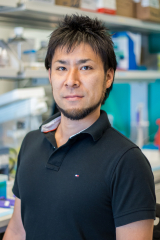Development of allogeneic off-the-shelf gamma delta T cell product for pediatric AML

Acute myeloid leukemia (AML) is the second most common type of leukemia in children and remains very deadly in patients with treatment-resistant disease. A novel type of therapy where patient’s infection-fighting cells (“T cells”) are engineered in a laboratory with a cancer-fighting protein called a chimeric antigen receptor, or a CAR, has shown great promise in patients with another type of leukemia that arises from B cells. However, the same approach has not yet been successful in treating AML, in a large part because of the poor “fitness” of cancer-fighting CAR T cells after multiple rounds of chemotherapy and the ability of cancer cells to “hide” from therapeutic cells. Furthermore, making these CAR T cells individually for each patient is a complex and lengthy procedure, during which the disease can progress further. Most of these limitations can be overcome by creating a CAR-T product pre-manufactured from healthy donors that 1) has optimal “fitness”, 2) can recognize and kill AML cells through multiple ways, and 3) is readily available for immediate treatment. However, creating these “off-the-shelf” cells requires solving many engineering and biological challenges. In this proposal, we will build on our prior work to overcome these challenges and create a potent and safe cell therapy for children with AML.
Project Goal:
To create safe and effective CAR T cell therapy for AML, we will use a special type of T cells called Vd2 T cells. These cells are very good at killing cancer through several mechanisms and are completely harmless when injected from one human to another. In our laboratory, we have further boosted these Vd2 T cells by changing the way we grow them in the dish, and by introducing another gene that stimulates their growth and promotes very high leukemia-killing activity. One problem that remains to be solved is how to prevent these therapeutic T cells, which are made from a healthy donor, from being recognized and rejected by the patient’s immune system. In this project, we will capitalize on our published and yet unpublished work to 1) optimize CAR Vd2 T cells to kill AML though multiple ways and select the best “recipe” that stimulates highest and longest AML-killing activity in various models, and 2) protect these CAR T cells from immune rejection using a special gene called ADR, which we have previously developed for “conventional” CAR T cells but have not yet applied to CAR Vd2 T cells. Overall, this proposal will integrate what we have learned to date about engineered cell therapy in AML and lead to the development of a novel, rigorously optimized, cell therapy for children with this difficult-to-treat disease.

